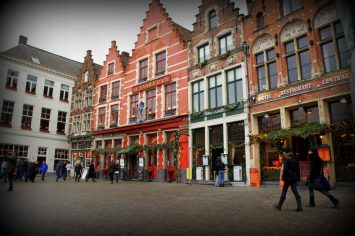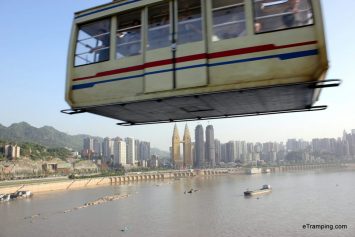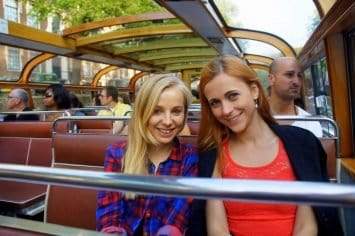Occupied since 12000 BC Western Africa includes eleven countries located in the bulge of Africa. In this area fortresses and colonial towns up and down the coast tell the sad tale of the slave trade that dominated these shores for several centuries. Today the coastline is still sometimes referred to as the Slave Coast.
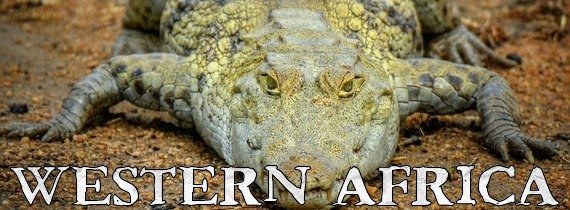
Following independence many Western African countries whose borders were determined by colonialists with little insight into ethnic differences, descended into civil war. In many areas discord persists. The wild and diverse terrain includes semi desert, tropical rain forests and sandy, white and often deserted beaches. The mighty Niger River meanders through the land.
The music loving people of this area are a colorful lot with a vibrant culture. The people dress in richly embroidered clothes and share dishes which over the centuries have had a strong influence on Western flavors.
Quick Navigation
ToggleCountries in Western Africa
Burkina Faso
Landlocked Burkina Faso in mid West Africa is not a tourist hotspot, and her unruly neighbors Mali and Niger have rendered travel to some areas unsafe. Burkina Faso has a harsh climate and poor infrastructure, but it also has a warm and welcoming population, and lovely landscapes. The national parks are home to a variety of eco-systems, housing hippos, monkeys, lions, leopards, elephants and buffalo.
The capital city, Ougadougou, is well known for its music and for its vibrant artwork. Around the countryside people live in traditional villages of huts built from straw, mud and dung, and then intricately and beautifully decorated.

In the south of the country the ruins of Loropeni, dating back to the eleventh century AD are the best preserved of ten fortresses which guarded the surrounding stone structures, the remains of settlements built by gold traders.
Benin
One of the smallest, least populated and most peaceful countries in Africa, this French speaking country is on the west coast. This is where voodoo originated, and it was also a major departure point for the export of slaves. In Oiudah follow the route that the slaves took from the Portuguese fort to the ships that took them abroad.

Visit Ganvie by motorboat or dugout canoe. This floating village of stilted houses was constructed in the sixteenth and seventeenth centuries as a defense against slavers. Today it houses twenty thousand people.
The capital, Porto Nova, was originally built as a port for the slave trade. It is best known for its lovely colonial architecture, and several well-stocked museums.
Visit Abomey, known as the Royal City, it was capital of the ancient Kingdom of Dahomey. It contains splendid royal palaces and a throne of human skulls. It also has one of Africa’s best museums, and its artists and craftsmen are famed for their beautiful handiwork.
Ivory Coast
A west African Republic and former French colony, this country boasts some of the best beaches in Africa. Here palm fringed sands meet cool Atlantic tides, and hotels and resorts pander to the whims of beach lovers.

Abidjan, the capital is a fairly young city and is one of the best urban areas you’ll visit in Africa, with the liveliest of nightlives. The city boasts modern shops, cafes, restaurants, nightclubs, a beach and a lagoon.
The Tai National Park is the largest primary tropical rain forest in Africa and one of the last remaining. It also contains a breath-taking array of wild life including highly endangered species such as pygmy hippopotamus, leopards and chimpanzees.
Cape Verde
An isolated volcanic archipelago off the African coast, Cape Verde is surrounded by the Atlantic Ocean. The landscapes on the ten islands alternate from barren desert to verdant mountainsides and lovely isolated beaches.

Strong Trade winds make the islands a great destination for those who love water sports such as sailing or wind surfing and every year its shores attract windsurfers and kite surfers from across the world.
Cape Verde is a great destination for adventurers. Here you can dive in underwater lava tubes and shipwrecks now occupied by fish and coral, charter a fishing trip to catch game fish such as marlin, quad bike through the barren hinterland or mountain climb up peaks that reach two thousand eight hundred metres in height.
Ghana
With over one hundred ethnic groups, Ghana is nonetheless an African success story, where people have lived in harmony under democratic rule for years. The coastal capital of Accra is one of the fastest growing cities in Africa and boasts restaurants, art galleries and plenty of entertainment.

The coastline of Ghana is dotted with historic fortresses, telling the tragic story of a past when this area was the mainstay of the African slave trade. The country’s economy is one of the fastest growing in the world thanks to the discovery of gold and offshore oil.
The country has some spectacular and pristine beaches with resorts and colorful fishing villages that are easily accessible by taxi. The powdery white sands are shaded by coconut palms, and the coast is full of great surf spots. The mountain slopes are covered in pristine rainforests with canopy walkways in the treetops.
Known for its friendly people, Forbes magazine voted Ghana one of the friendliest nations on earth.
Gambia
The smallest country in Africa has just eighty kilometers of coastline, but the coast that it does have is magnificent. Sandy white beaches are fringed with coconut palms and dotted with colorful little fishing villages and holiday resorts. The tropical temperatures are warm all year round. Here you can horseback ride on Atlantic coastline or dance to the beat of traditional drums.

The River Gambia dominates the landscape since the country essentially occupies its floodplain. Along its banks live six hundred species of birds, hippos, monkeys and crocodiles. Many of the birds are rare and the area attracts bird lovers from around the world.
Here you can find stone circles reminiscent of Stone Henge and of a similar age, visit a chimpanzee rehabilitation centre, or canoe through wetland reserves and mangrove forests.
Guinea
A former French colony on the west coast of Africa, this country has huge mineral deposits and the potential to be one of the richest countries in Africa but it is one of Africa’s poorest, having to deal with thousands of refugees from neighboring countries.

Conakry City the capital shows the effects of the unrest which has torn the nation apart over the years, but the vibrant markets and beer bars where Malinke music is played are worth a visit. Just off the capital city a group of islands, Iles de Los, floats in the ocean. The palm-fringed sandy beaches of these islands are warm all year round and are serviced by resort hotels. They can be reached by boat.
The forest reserves are home to mongooses, manatees, chimpanzees and giant pangolins. The emerald green slopes of Mount Nimba, tower over the Savannah grasslands and the surrounding green pasture and are home to zebra, duiker and pygmy hippos amongst other animals. Nicknamed the water tower of Africa more than twenty of Africa’s rivers originate in the highlands of Guinea and bestow upon the soil lush and verdant vegetation.
Guinea Bissau
Guinea-Bissau is a small country on the bulge of Africa. Just off its coastline is Africa’s only archipelago, the Bissagos. The archipelago consists of eighty-eight tropical islands and is a biosphere reserve. On these islands long, powdery beaches surround wetlands and mangrove swamps. The ocean surrounding the islands is home to sharks, turtles and manatees, and the area is great fishing and diving. The islands shelter salt water hippo, chimpanzees, monkeys and buffalo as well hundreds of species of birds.

Much of the coastline of Guinea-Bissau is low lying and covered in mangroves so many people in the country travel by boat. The banks of the mangroves swamps are scattered with picturesque, traditional round mud and straw huts.
The people of Guinea- Bissau are some of the poorest on earth and have been subjected to coups and civil wars since independence. The result is crumbling infrastructure. There are however still some examples fading colonial charm in the homes and buildings left by the Portuguese.
Liberia
Liberia is the oldest African republic and was founded as a means to repatriate the slaves freed by the United States into Africa. Arriving on a steamship, the freed slaves took over the land already occupied by others and declared independence in 1847.
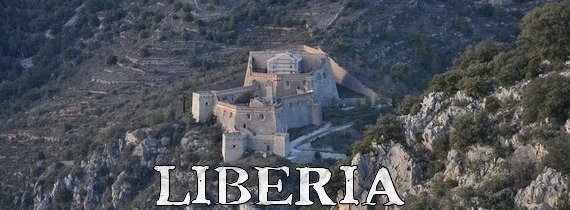
After decades of war, infrastructure in Liberia is limited, the highways are riddled with potholes and most of the roads are dirt or gravel paths. Whilst there are still some shells of buildings left from the war, Liberia has started rebuilding itself, and despite being one of the poorest nations on earth, there are now hotels and restaurants springing up around the country.
Located on the Atlantic coast of Africa, Liberia has a lovely coastline dressed with golden sands and some of the best surf waves, and yet the beaches are deserted.
The Sapo National Park boasts 125 species of animals and 590 bird species. The animals include pygmy hippos, forest elephant pangolins, crocodiles leopards and monkeys.
Mali
Landlocked Mali in the west of Africa has been off the tourist map for some time now as terrorism and political instability has made it unsafe. One of the five poorest countries on earth, it has little infrastructure, few hotels, bars or restaurants.

Stuck in the middle of the Sahara Desert Mali, nonetheless was once a centre of world learning and contains the great libraries of Timbuktu, which themselves house original sixteenth-century documents of studies covering various sciences. The city became a major trading centre and centre of knowledge in the fourteenth century.
In this country, an ancient people, the Dogon, refugees from Ghana, have cut their homes into the sandstone cliffs where they have lived vertically for the last seven hundred years.
In Djenn find the largest mud structure on earth, a mosque. The city itself has been around since 250BC.
This desert land also has some spectacular rivers, sail the Niger or gaze upon the Gouina Falls on the Senegal River, it is half a kilometer wide and sixteen metres high, a magnificent sight to behold.
Mauritania
Situated on the bulge of Africa Mauritania is a land dominated by sea and desert, and boasts some of the most magnificent scenic beauty in Africa. Here you can stay in ancient caravan towns in the sun-bleached desert dunes in the Adrar. The beautiful desert landscapes are pure and bare of any vegetation, just peaks and troughs of silky soft sand, and the desert stretches all the way to the Ocean.

The coast is home to one of the last Mediterranean monk seal colonies and two million migratory birds descend here in the Spring. The Ocean waters in this area are some of the richest in the world and colorful fishing boats bob around the coastline.
Find fortified trading villages filled with crumbling sandstone buildings from the middle ages. Once camel trains carrying salt and dates along this way.
Al Qaeda is active in this part of Africa, and travel along the borders with neighboring countries is considered unsafe. The border areas are also known to harbor unexploded landmines.
Niger
Landlocked and in central Africa, Niger is a country that few will visit. Here violence and terrorism have made travel dangerous.

Although arid and hostile Niger is nonetheless known for its magnificent natural beauty. Tucked away in the magnificent Air Mountains in the north of the country find fine examples of Neolithic art. In the desert, dinosaurs are buried deep beneath the sand and medieval towns remain from the rich Saharan trade routes that ran through the country for hundreds of years.
Agadez and Zinder are two such towns. They boast beautiful adobe houses, ancient Mosques and busy markets that sell all manner of African artefacts.
Despite the ongoing unrest Niger boasts several national parks that house leopards, elephants, giraffes, hippos, baboons and lions. The mighty Niger River after which the country was named supports some of its finer eco-systems.
Nigeria
Located on the western shores of Africa, Nigeria is the most populous country in Africa. The larger cities are vibrant and busy and hotels and restaurants abound. Lagos has the fourth largest population in the world and is comparable in population density to Mumbai. It is noisy energetic and crowded.

The country has a vibrant art and music scene, but there is little to see by way of historical interest. Historical remains that still exist are in a poor state of repair. Nigeria has the biggest economy in Africa and is a major oil producer, but many live in abject poverty. Nonetheless, the people are known for their friendliness and welcoming good humor.
Nigeria is a land of vast grasslands and a fair offering of wildlife. It has a coastline decked with golden sands and the national parks contain a number of endangered West African species.
Saint Helena
These islands, a British overseas territory in the South Pacific, are separated by hundreds of kilometres of ocean.
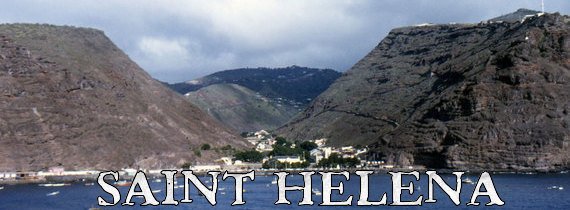
Uninhabited when it was discovered by the Portuguese, Saint Helena has an abundance of natural unspoilt beauty and around five hundred endemic species. Here you can swim with whale sharks or and explore historic wrecks. Famed as the isolated island that was Napoleon’s last home, his grave and the houses that he occupied are of historic interest.
Ascension is a dormant volcano surrounded by what is to become one of the biggest marine reserves in the world. The island was barren of vegetation until 1850 when a British botanist imported trees that eventually formed a cloud forest and now the island attracts tourists that hike and climb in one of the few large scales planned forests on earth.
Tristan da Cunha can only be accessed by cargo ship and then it doesn’t dock, so getting to the island is difficult. The rugged landscape, the isolation and the old school hospitality make this a destination with a difference.
Senegal
With lush rainforests, a desert, grasslands and beautiful white sandy beaches, Senegal on the bulge of Africa, is a stunning destination without too many tourists.

Life in Senegal is played to the beat of the drum and sway of music. Visit the busy markets or the noisy jazz bars in Dakar, the capital. From here take a boat to the island of Goree. For four hundred years it was the largest slave-trading post on the coast of Africa. The museums and houses tell its tragic tale. The capital is known for some of the best surfing beaches in Africa.
Take a boat ride through the Djoudj National Bird Sanctuary, a wetland home to 1.5 million birds of 365 species. Stay in a traditional grass hut in a desert village occupied by the semi-nomads that live there. Find elephant, lions, giraffes, rhino, crocodiles and chimpanzees in the National Parks.
From vibrant cities to tropical beaches and lovely landscapes, Senegal has it all.
Sierra Leone
Once a popular holiday destination, Sierra Leone plunged into civil war and the visitors left. Now the war is over and people are waking up to the stunning natural beauty with which this country is endowed.

Sierra Leone is the gem of West Africa. With more than three hundred and sixty kilometres of pristine white beaches, verdant tropical forests cascade down the hills to the golden beaches below.
With six hundred and thirty species of birds, the national parks on the slopes of the mountains are home to many rare birds and primates.
Tiwai Island Wildlife Sanctuary is an extraordinary place, home to eighty rare pygmy hippos and eleven species of primate. A boating trip around the island gives visitors an opportunity to view one of the one hundred and thirty bird species that live there.
Togo
Togo has only 56km of Atlantic coastline and yet this small African country is best known for its palm-fringed, white beaches, but Togo has so much more than just beaches.

On the hillsides of the hinterland cocoa and coffee plantations grow in lush abundance and in the Savannah grasslands lions stalk wild herds of buffalo and antelope. In the marshes and mangroves along the coast hippos and crocodiles cool off in the heat of the day. Nearly seven hundred bird species call this home.
Around half the population of Togo follows voodoo practices and here you can obtain your own personal charm from the Fetish Market in the small but lively capital city Lomé, Here the Grande Marche street market features west African jewellery, masks and pottery amongst the colorful trade in everyday goods.
Travel in Togo is easy since the infrastructure is good and the distances short.
